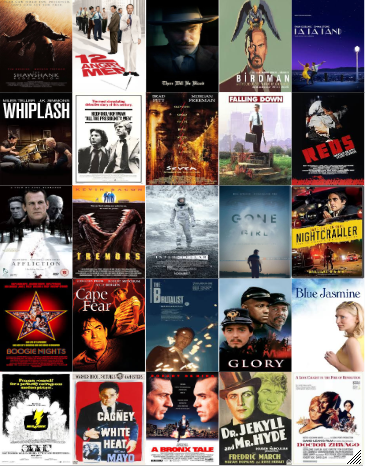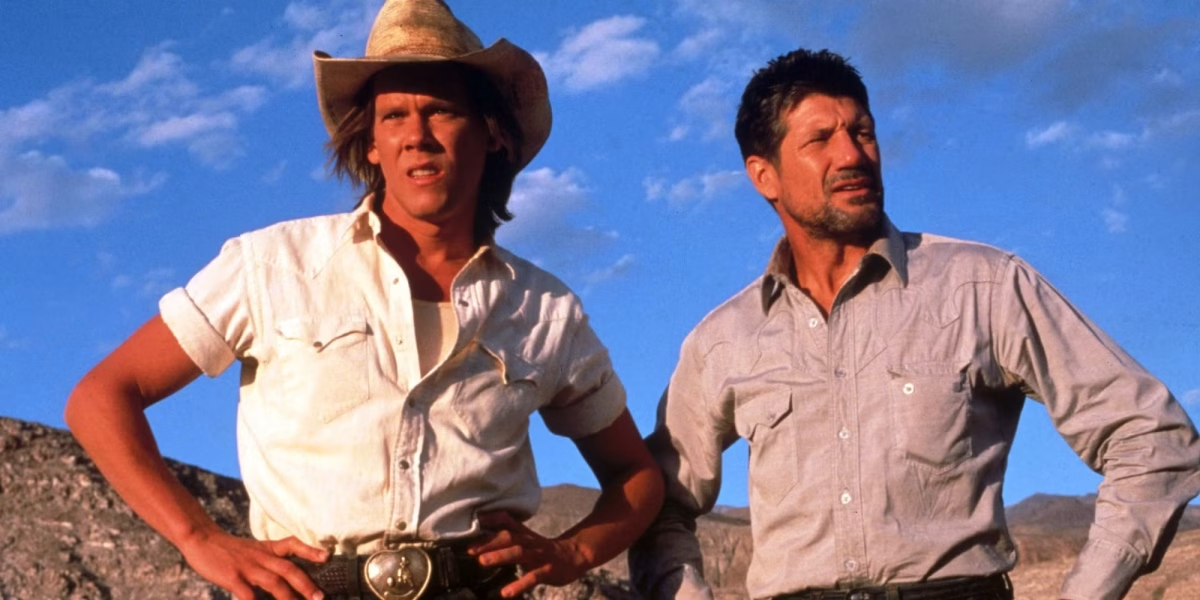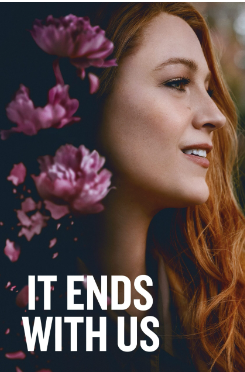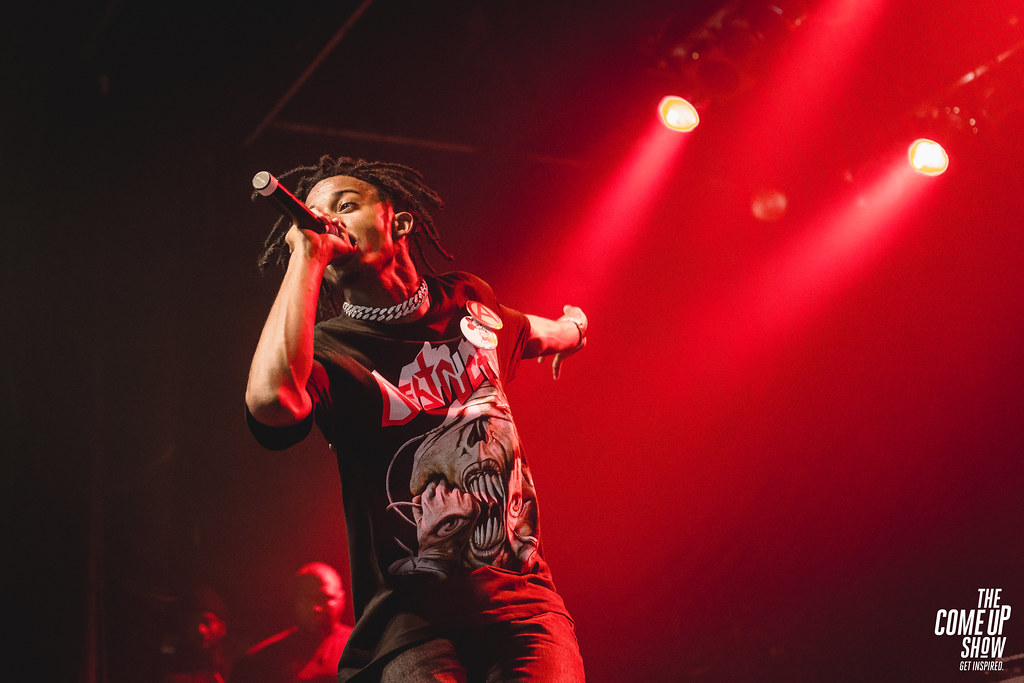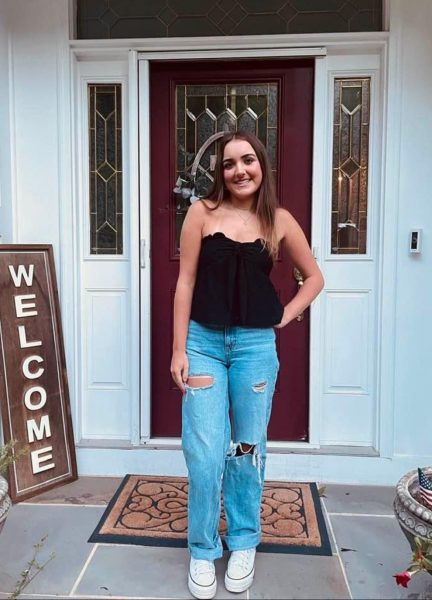It Ends with Us is an adaptation of the author Colleen Hoover’s bestselling novel of the same name. The film, directed by filmmaker, Justin Baldoni, brings Hoover’s story to life with a blend of emotional depth and dramatic intensity. The film effectively translates the book’s love, resilience, and difficult choices into a visual narrative that speaks with the audience.
The movie centers around Lily Bloom (played by Blake Lively), a young woman who moves to Boston to open up her dream flower shop. She strives to build a life after a traumatic and violent past. This gifted actress captures Lily’s helplessness and strength. Her journey is marked by a hectic relationship with Ryle Kincaid (portrayed by Justin Baldoni), a neurosurgeon whose charm hides a deeper and darker side. Their relationship begins with much passion but quickly excavates into a darker atmosphere. The movie does an admirable job of portraying the emotional and psychological impact of abusive relationships, making the audience even struggle with the difficult decisions Lily faces. Junior Krystin Tran who watched the movie explained “to always watch out in relationships because at any point they could turn abusive. Ryle was portrayed as the abuser and the movie shows what Lily went through. I was left upset after it ended because it really shows the abuse of what someone might go through in these situations.” The themes of domestic abuse and personal growth with sensitivity simplifies the novel’s deeply disturbing elements.
Blake Lively delivers a standout performance as Lily Bloom. She brings a hint of vulnerability and strength, making Bloom’s internal growth believable. Lily Benemerito, a junior at West Morris, expresses that a scene that stood out to her was “when Lily walked away from Ryle and stood up for herself.” Her representation is both heartwarming and motivational. It helps capture the essence of character between love and self defense. This is also seen when her and Ryle get married and his darker side comes out. After she discovers she is pregnant, she has to decide whether to leave or stay.
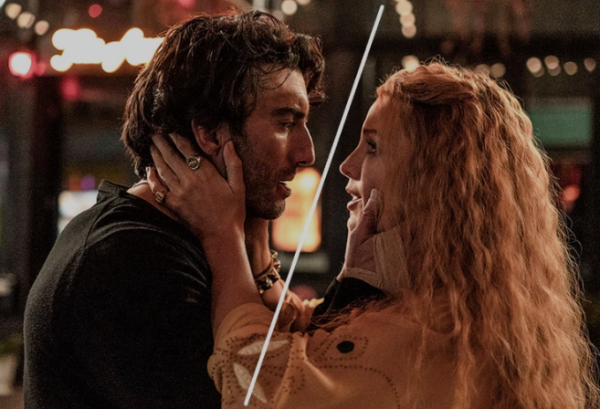 Justin Baldoni offers a performance that is both fascinating and frightening. His ability to switch between charismatic and threatening characters adds much depth to the film’s exploration of abusive relationships. Although the film doesn’t exactly paint Ryle as a villain. The first hour of the movie is shown as a romcom that unfolds and shows the audience more about Ryle’s childhood. This is an attempt to explain why he is the way he is and understand him more as a sympathetic character, but his abuse is inexcusable.
Justin Baldoni offers a performance that is both fascinating and frightening. His ability to switch between charismatic and threatening characters adds much depth to the film’s exploration of abusive relationships. Although the film doesn’t exactly paint Ryle as a villain. The first hour of the movie is shown as a romcom that unfolds and shows the audience more about Ryle’s childhood. This is an attempt to explain why he is the way he is and understand him more as a sympathetic character, but his abuse is inexcusable.
The connection between the characters is passionate, and the supporting cast adds depth to the narrative. There are many layers to this movie, but mostly the generational cycle of abuse in her family is addressed. Her father abused her mother, while she vowed to never be like her mom, Bloom ends up in the same exact situation. The cinematography enhances the emotional burden of the story, with detailed scenes that underline the high and lows of Lily’s personal experiences.
However, while the film’s portrayal of complex themes is serious, some might find its pacing uneven, and the undertaking purpose may feel rushed compared to the novel. Some agree that some parts of the movie were predictable. Lily Benemerito feels “ they needed better actors due to the acting being bad.” To add onto her statement Lily and Ryle’s relationship didn’t capture the emotional depth.
Overall, It Ends with Us is a powerful conversion that offers an engaging and thought-provoking view to different experiences and audiences, even if it occasionally falls short of the book’s emotional depths and darkness.





















